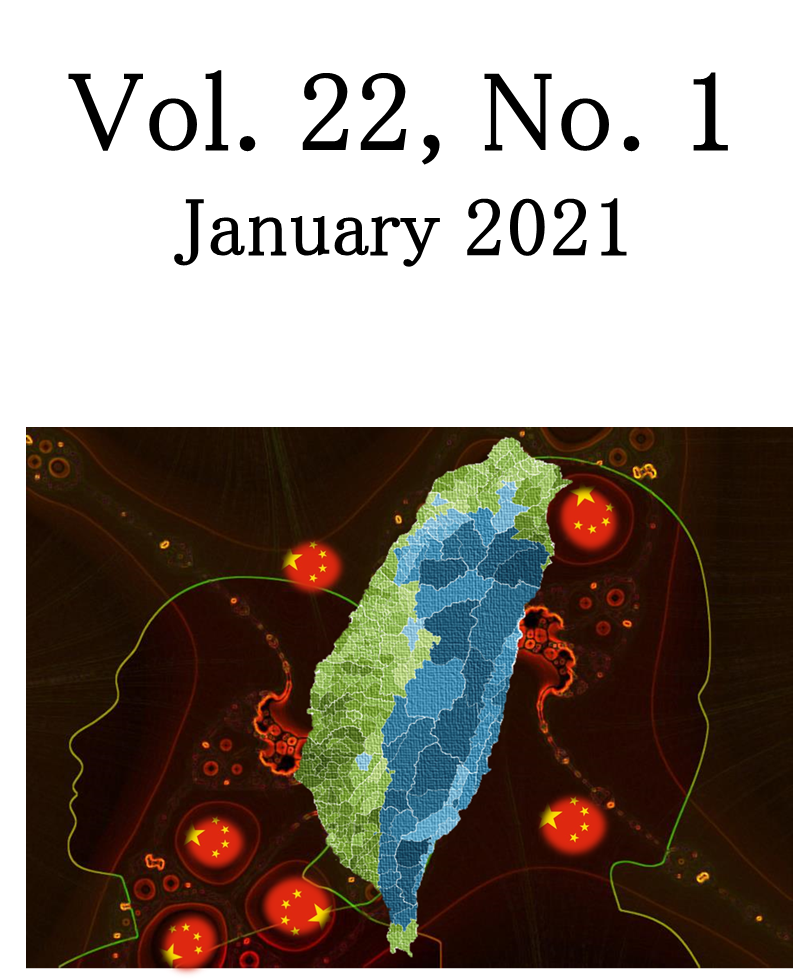The Chinese Cognitive Warfare Model
Taiwan Social Sciences Citation Index(TSSCI)
Prospect Quarterly Vol.22 No.1 (January 2021)
Source: Pixabay, < https://pixabay.com/illustrations/connection-fractal-neural-pathways-647217/>.
The Chinese Cognitive Warfare Model: The 2020 Taiwan Election
(Assistant Professor, Graduate School of Criminology,
National Taipei University)
This research paper applies the extended diamond model in an attempt to illustrate Chinese cognitive warfare waged against Taiwan
during the 2020 election. The paper is informed by 320,000 pieces of data, collected between May 1, 2019 and January 31, 2020, that
demonstrate abnormalities on the Internet and the attribution of these abnormalities to possible players in China. According to the data
collected, four different attack models existed during the 2020 election: the propaganda model, the pink model, the content farm model, and
the collaboration model. This paper suggests that we need different defensive mechanisms to counterattack information operations from China.
Keywords:Information Operation, Cognitive Warfare, Diamond Model, Attack Model, Political Warfare
The Radicalization of Ditigital Populism and Its Potential Threats to Democracy: A Case of English Defence League
(Associate Professor, Department of Political Science, R.O.C. Military Academy)
Digital populists, or cyber-populists, have used digital technologies, or information and communication technologies, as communicating and mobilizing tools of political participation for politicians and the public to resort to direct democracy and to lead people away from representative democracy. Digital populists intend to override or destroy the established democratic constitutionalism through extremism or discrimination. This paper reviews the literature of populism to explore the characteristics and operations of digital populism by analyzing the British populist organization, the English Defence League, a far-right anti-Islamic organization that has used social media to pressure the European countries’ counter-terrorism and immigration policies by violence. In particular, far-right parties have acquired a considerable number of seats in national parliaments and the European Parliament, and they are a potential threat to the democratic countries of the European Union and democracy.
Keywords: Digital Politics, Digital Populism, Cyber Populism, Digital Citizenship, English Defence League
Analyzing the Causes of Trump’s Challenges
to Global Trading Regime from the Perspective
of International Regime
(Associate Professor,
Center of General Education, National Chiao Tung University)
By upholding “America First,” Trump adopted economic nationalism in trade, while utilizing tariffs to compel trading partners to negotiate trade deals and disparaging the WTO and undermining its functions. These acts posed the most critical challenges to the global trading regime since World War Two. Using the lenses of international regime perspective under neoliberal institutionalism, this essay argues that the dysfunctions of the WTO, the relative decline of US power, and US domestic factors have led the US to no longer to support this global trading system. This essay adopts a qualitative approach to investigate the causes of Trump’s challenges to the global trading regime.
Keywords:International Regime, Global Trading Regime, Hegemonic Stability, Neoliberal Institutionalism, Donald Trump


